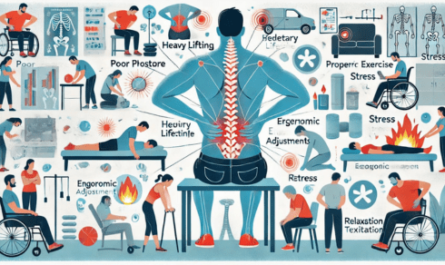
Muscle testing, often referred to as applied kinesiology, is a technique that has gained attention in the realm of alternative medicine and holistic health. At its core, muscle testing involves evaluating the strength and response of muscles to various stimuli or questions, with the aim of identifying imbalances or issues within the body. This practice is based on the principle that the body’s muscles can provide valuable insights into its overall health and well-being.
Understanding Muscle Testing
Muscle testing is grounded in the belief that the body holds a wealth of information about its health status. By assessing how a muscle responds to certain stimuli, practitioners can gain insights into underlying health issues. The technique typically involves a practitioner applying pressure to a specific muscle while the patient resists. Changes in muscle strength or response are interpreted to provide information about the body’s condition.
One of the primary principles behind muscle testing is that the body’s muscles can become weak or compromised when exposed to stressors or imbalances. For instance, if a particular organ or system is not functioning optimally, the muscle associated with that organ may show weakness during testing. Conversely, if the muscle remains strong, it may indicate that the area in question is functioning well.
The Benefits of Muscle Testing
1. Identifying Nutritional Deficiencies
Muscle testing is often used to identify nutritional deficiencies or imbalances. During a session, a practitioner might test a muscle’s response to various supplements or foods. If the muscle weakens in response to a specific substance, it may indicate that the body is not tolerating or absorbing that nutrient effectively. This can help guide dietary changes or supplement recommendations tailored to the individual’s needs.
2. Assessing Food Sensitivities
Food sensitivities and allergies can be challenging to pinpoint through traditional methods. Muscle testing can provide insights into how the body responds to specific foods. By testing the strength of a muscle in response to different foods, practitioners can identify potential sensitivities or intolerances that may be affecting overall health. This can be particularly useful for individuals experiencing unexplained digestive issues or chronic health problems.
3. Evaluating Emotional Stress
The mind-body connection plays a significant role in overall health, and emotional stress can manifest physically in various ways. Muscle testing can help assess the impact of emotional stress on the body. For example, if a muscle weakens in response to stress-related questions or stimuli, it may indicate that emotional factors are contributing to physical symptoms. This can help guide approaches to managing stress and addressing its impact on health.
4. Supporting Chiropractic and Acupuncture Treatments
Muscle testing is often used in conjunction with chiropractic and acupuncture treatments. Chiropractors may use muscle testing to identify areas of misalignment or dysfunction within the spine. By assessing muscle strength in response to spinal adjustments, they can gauge the effectiveness of their interventions. Similarly, acupuncturists may use muscle testing to determine the impact of specific acupuncture points on muscle strength and overall health.
5. Guiding Personalized Health Plans
One of the key advantages of muscle testing is its potential to provide personalized insights into an individual’s health. Traditional diagnostic methods may offer generalized information, but muscle testing can offer more specific details about how the body is responding to various factors. This can help practitioners develop tailored health plans that address the unique needs and imbalances of each individual.
The Controversy and Considerations
While muscle testing has its proponents, it is not without controversy. Critics argue that the technique lacks scientific validation and may be influenced by subjective factors. The results of muscle testing can vary based on the practitioner’s skill and the individual’s state of mind. As with any health technique, it is essential to approach muscle testing with an open mind and consider it as one component of a comprehensive health assessment.
Individuals interested in muscle testing should seek practitioners who are experienced and well-trained in the technique. It is also important to use muscle testing in conjunction with other diagnostic methods to ensure a well-rounded approach to health care.
Conclusion
Muscle testing offers a unique perspective on health and well-being by evaluating the body’s responses to various stimuli. Whether used to identify nutritional deficiencies, assess food sensitivities, evaluate emotional stress, or support other treatments, muscle testing can provide valuable insights into individual health. However, it is essential to approach this technique with an understanding of its limitations and consider it as part of a broader health assessment strategy. As with any health practice, it is crucial to work with qualified practitioners and combine muscle testing with other diagnostic and therapeutic approaches to achieve optimal health outcomes.



